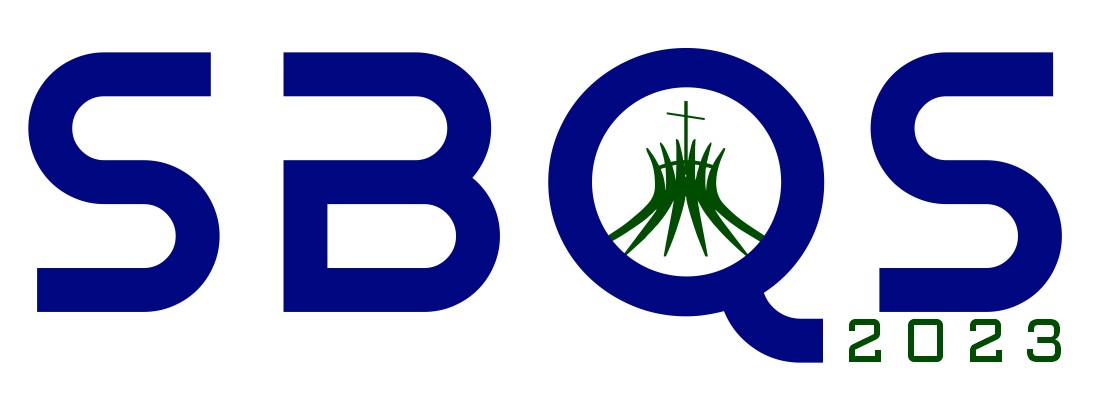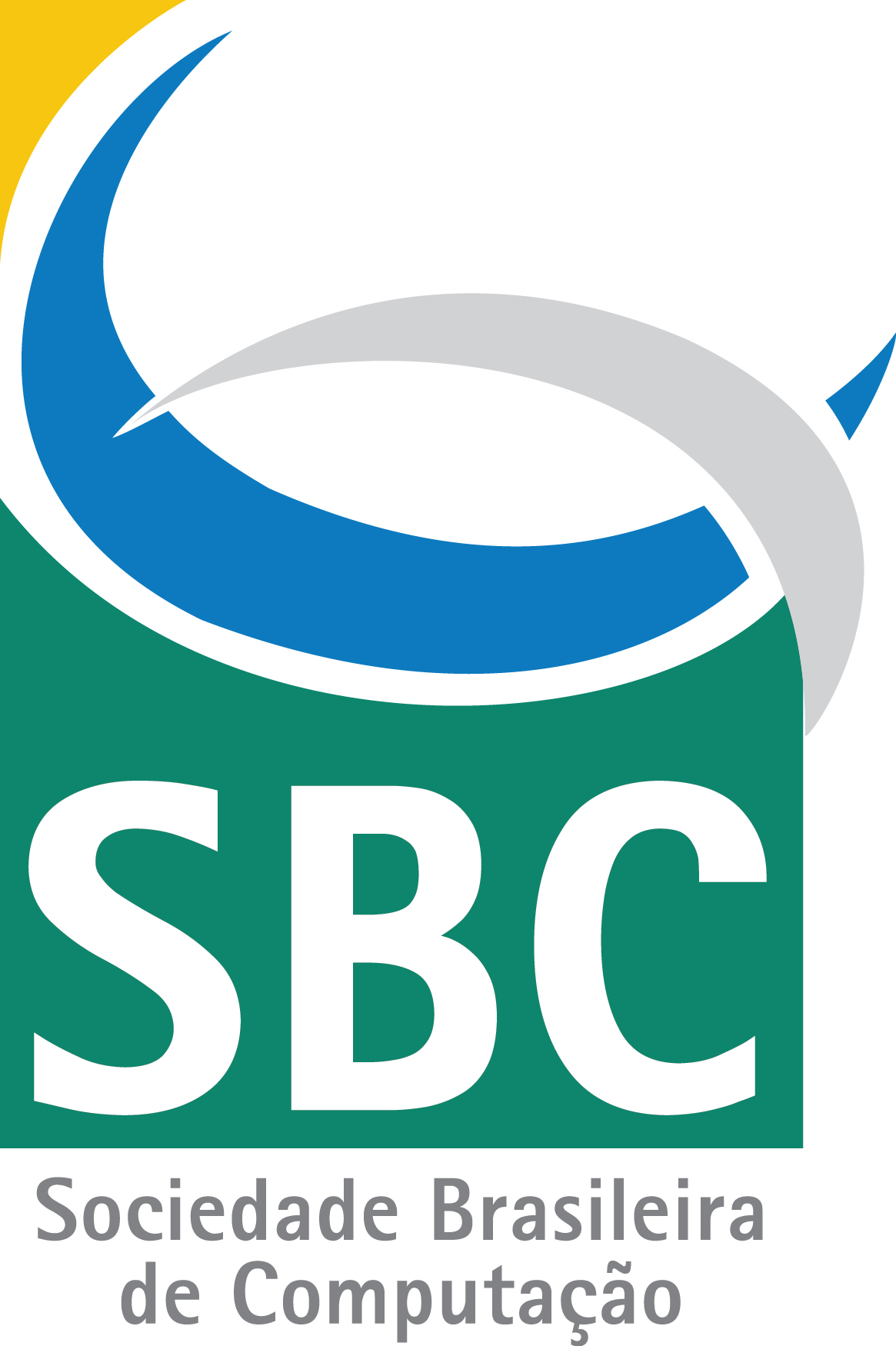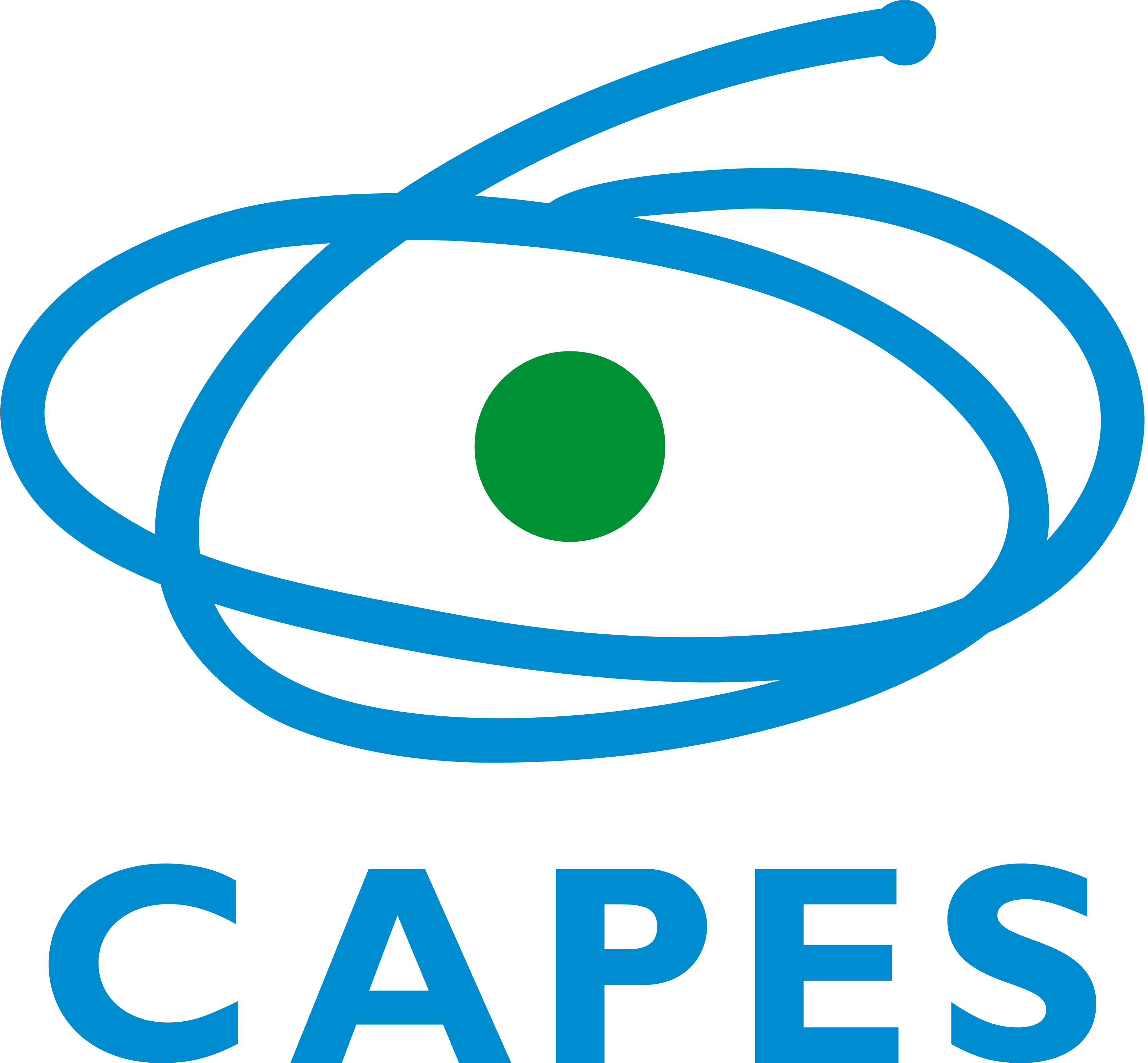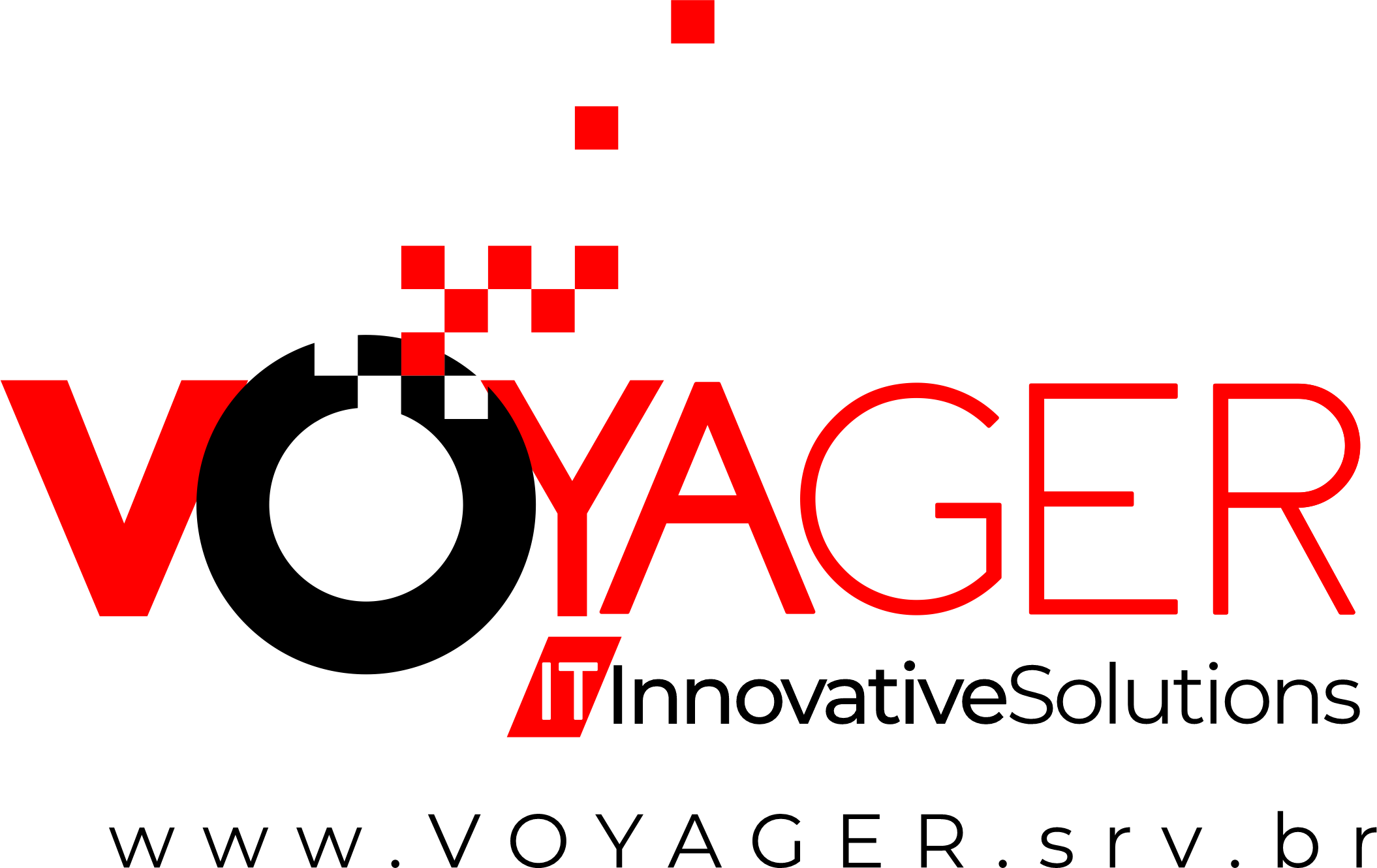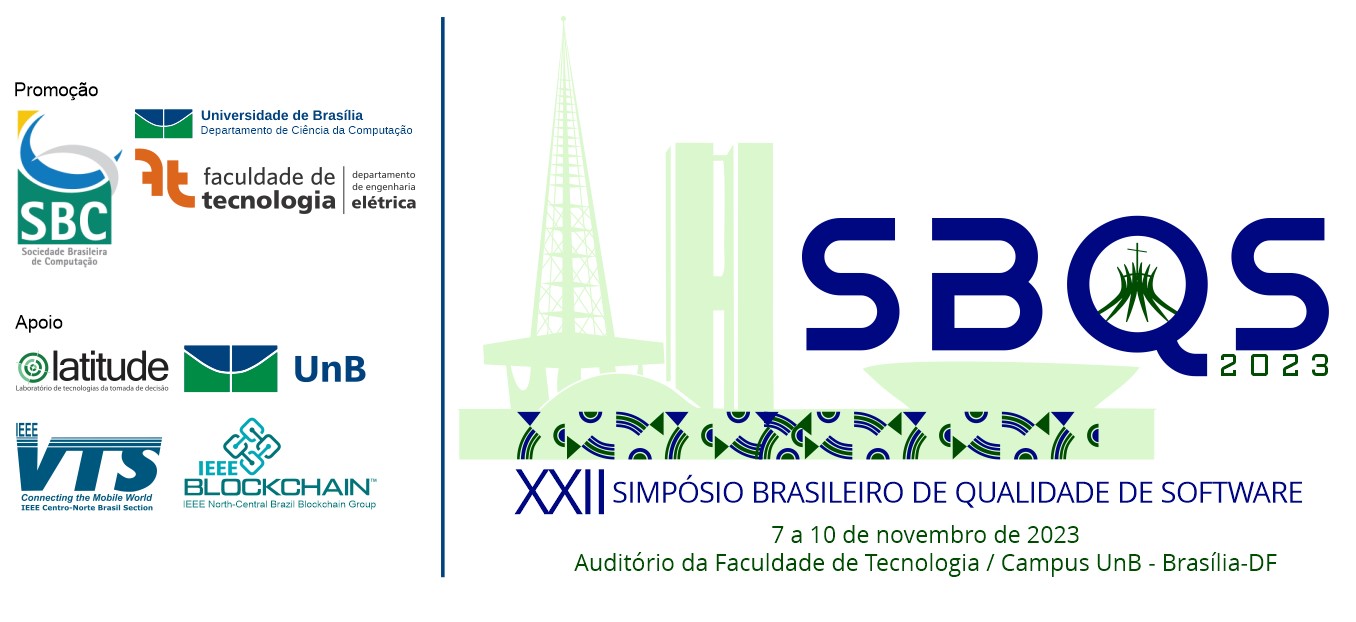CALL FOR PAPERS - RESEARCH TRACK
SBQS 2023: The 22th Brazilian Symposium on Software Quality
November 7th to 10th, 2023, Brasília, DF, Brazil
SBQS
The Brazilian Symposium on Software Quality (SBQS) is the main Brazilian forum dedicated to Software Quality. The quality of the software is manifested in two complementary and dependent aspects: Process Quality and Product Quality. With the current heavy reliance on software and aggregated services, research into software quality and its application in products and services is both a necessity and a differential to provide value to organizations and their businesses.
Since its creation, the SBQS has excelled by the exchange of experiences between academia and industry, where researchers, educators, and the Software Quality and Software Engineering practice community meet to present and discuss ideas, experiences, and discoveries with a view to with the potential to positively influence the software industry.
Aim and Scope
The focus of the Research Track is in high-quality technical papers describing original results related to Software Quality and not yet published. Papers describing pioneering research results in the area of Software Quality with an academic contribution are expected. The papers may present conceptual, empirical, experimental or theoretical works. The SBQS encourages the publication of the evaluation and analysis of the results presented in the papers. Results obtained by means of experimental techniques, whether primary or secondary, and qualitative or quantitative analyses are welcome.
Topics of Interest
Submissions on all topics related to Software Quality are welcome. Topics of interest to the track include (but are not limited to):
- High Maturity and Statistical Process Control
- Acquisition of Software Products
- Acquisition of IT Services
- Process Evaluation
- Product Rating
- Requirements Engineering
- Continuous Software Engineering
- Human Factors and Social Aspects in Software Quality
- Quality Assurance of IT Services
- Software Quality Assurance
- Configuration Management
- Knowledge Management and Organizational Learning
- Portfolio and Project Management
- People Management
- Software Process Lines
- Software Product Lines
- Software Maintenance and Evolution
- Software Measurement
- IT Service Process Improvement
- Software Process Improvement
- Agile Software Development Methods
- Process Modeling
- Models and Standards of Capacity and Maturity
- Software Processes, Methods, and Tools
- Design and Integration of Software and IT Services
- Quality of Software applied to IT Services
- Services and Software Reuse
- Usability and User Experience
- Value in Software Quality
- Verification, Validation, and Testing
Evaluation Criteria
Papers of this track will be evaluated considering their originality, relevance, technical solidity, and clarity of presentation.
Important Dates
- Paper registration (abstract submission): July 18th, 2023 August 01st, 2023 (hard)
- Paper submission: July 25th, 2023 August 01st, 2023 (hard)
- Rebuttal period: September 04th to September 13th, 2023
- Notification of acceptance: September 19th, 2023 September 26th, 2023
- Camera-ready version: September 26th, 2023 October 05th, 2023
Manuscript Preparation and Submission
All submissions must be in PDF format and must follow the two-column ACM format for conferences (Interim template), available in ACM SIG Proceedings Templates. The use of LaTex (sigconf) is strongly recommended. In this case, authors should use the acmart.cls class provided in the template with the conference format enabled in the preamble of the document: \documentclass[sigconf]{acmart} and also apply the ACM-Reference-Format.bst bibliography style provided in the template: \bibliographystyle{ACM-Reference-Format}.
If authors choose to use Word format, they should be aware that if their paper is accepted, it will be the authors' responsibility to take all actions to ensure that the file is correct and validated by the ACM system (which may require handling macro errors or changing the format of the paper to LaTex)
Papers should not exceed 10 pages, including all figures, tables, appendices, references, and acknowledgments. Submissions should be made electronically through the JEMS system.
Papers should be written in Portuguese or English. Submissions in English are strongly encouraged. The proceedings will be published in the ACM Digital Library and also indexed by the SBC Open Library.
Submissions that do not meet the required format or are outside the scope of the Research Track will be rejected without revision.
The paper review process includes a rebuttal period in which authors will have access to reviewers' comments and may present arguments and responses to comments and questions submitted by reviewers before the final decision to accept or reject the paper.
The acceptance of an paper implies that at least one of the authors must register to SBQS, including the respective publication fee(s), to present it in person during the event and that authors must provide extra files required by the general chair (for example, the previous presentation video following the requested format by SBQS). Additionally, for the purpose of speeding up the publication process, authors of accepted papers must fill some forms requested by the proceedings chair on specific dates.
Papers submitted to the Research Track must not have been simultaneously submitted to another forum (scientific event or journal), nor have they been previously published.
Double-Blind
The SBQS 2023 Research Track adopts a double-blind review process. Thus, submitted papers must omit any information that would allow their authors to be identified. To this end:
- Authorship information should be omitted (i.e., the paper should not include authors' names and affiliations, as well as other information that would allow authors to be identified, such as university name, project identification, or funding information);
- References to previous work by the authors should be presented in the third person (e.g., use "in the work of Sousa et al." instead of "in our work") or by anonymizing the reference in the references section (e.g., instead of "this work evolves the proposal of Sousa et al.", one can use "this work evolves our previous proposal presented in [ref]", and the reference [ref] can be included as "[ref] Reference omitted due to double-blind review" in the references section);
- If the paper includes links to artifacts related to the work, only repositories or websites that do not allow identification of the authors should be cited. To anonymize GitHub-based repositories you can use the anonymous service (https://anonymous.4open.science/).
Note that reviewers will not be encouraged to search other sources for references that identify the authors. Searching digital libraries or existing artifacts does not compromise the double-blind review process.
If the article is accepted, information omitted in the submitted version should be included in the final version.
Use of AI-assisted technologies in papers submitted to SBQS 2023
Papers submitted to the SBQS 2023 tracks should strictly follow the guidelines below regarding the use of AI or AI-assisted technologies (they were inspired by Elsevier and International Conference on Machine Learning policies).
What is forbidden:
- Text or image produced/generated entirely by AI or AI-assisted technologies; and
- Any AI or AI-assisted technology as an author.
What is allowed:
- Using AI or AI-assisted technologies for editing or polishing author-written text;
- Using AI or AI-assisted technologies for improving the quality of images regarding contrast and clarity; and
- Investigating the use of AI or AI-assisted technologies to support Software Engineering activities relevant to Software Quality.
Best Paper Award
SBQS rewards the best paper of each track every year. The Research Track Chairs and SBQS Steering Committee will choose the winning papers from the Program Committee reviews. The award-winning papers will be announced at the event.
Authors of the best papers will be invited to submit extended versions for publication in the Journal of Software Engineering Research and Development (JSERD).
JOURNAL FIRST
The SBQS is partnering with the international journal "Journal of Software Engineering Research and Development" (JSERD) to incorporate the journal's papers as Journal First into the SBQS 2023 Technical Program.
Authors of papers published recently in this journal that meet the evaluation criteria are invited to present their research papers in the SBQS. This provides an opportunity for authors to discuss their work with the software quality community as well as enrich the SBQS technical program.
The following evaluation criteria will be used to select papers as Journal First in SBQS 2023:
- The paper should have been published at JSERD as: Research Paper, Case Study or Systematic Review;
- The paper describes original results that are not extensions of papers from previous conferences;
- The paper was accepted for publication in the journal before January 1st, 2023;
- The paper was not presented at any other conference such as Journal First;
- At least one of the authors of the selected paper as Journal First must register and attend SBQS 2023 to present it.
Authors interested in submitting an paper such as Journal First in SBQS 2023 need to send an email to the Program Co-Chairs - Monalessa Barcellos (This email address is being protected from spambots. You need JavaScript enabled to view it.) and Ismayle Santos (This email address is being protected from spambots. You need JavaScript enabled to view it.) - with the subject "Journal First - SBQS 2023" until June 30th, 2023. The following information should be provided: (i) title of the paper, (ii) list of authors, (iii) the link of the web page to access the paper; and (iv) a brief statement on how the work meets the above criteria.
Program Committee Co-Chairs - Research Track
Monalessa Barcellos (UFES)
Ismayle Santos (UECE)
SBQS Steering Committee
Adriano Bessa Albuquerque (UNIFOR)
Davi Viana (UFMA)
Edna Dias Canedo (UnB)
Gleison Santos (UNIRIO)
Ivan Machado (UFBA)
Monalessa Perini Barcellos (UFES)
Rodrigo Santos (UNIRIO)
Sheila Reinehr (PUCPR)
Tayana Conte (UFAM)
Proceedings Chair
Simone Dornelas Costa (UFES)
Program Committee
Adenilso Simao (ICMC-USP)
Adriana Lopes (UFAM)
Adriano Albuquerque (UNIFOR)
Alexandre Vasconcelos (UFPE)
Alfredo Goldman (IME - USP)
Aline Vasconcelos (IFF)
Ana Oran (UFAM)
Ana Regina Rocha (COPPE/UFRJ)
Anderson Belgamo (IFSP - Campus Piracicaba)
André Luís Menolli (UENP)
Anna Beatriz Marques (UFC)
Auri Marcelo Rizzo Vincenzi (UFSCar)
Awdren Fontão (UFMS)
Breno de França (UNICAMP)
Bruna Diirr (UNIRIO)
Bruno Cafeo (UNICAMP)
Bruno Gadelha (UFAM)
Carla Bezerra (UFC)
Crescencio Lima (IFBA)
Daniel Lucrédio (UFSCar)
Daniel Porto (UnB)
Danilo Ribeiro (Zup Innovation)
Davi Viana (UFMA)
Edna Canedo (UnB)
Edson OliveiraJr (UEM)
Elaine Venson (UnB)
Everton Alves (UFCG)
Fabiana Freitas Mendes (UnB)
Glauco Carneiro (UFS)
Gleison Santos (UNIRIO)
Heitor Costa (UFLA)
Henrique Sousa (UNIRIO)
Hudson Borges (UFMS)
Ivaldir Junior (UPE)
Ivan Machado (UFBA)
Johnny Marques (ITA)
José Maldonado (SSC/ICMC-USP)
Leonardo Medeiros (IFSP - Campus Piracicaba)
Marcelo Yamaguti (PUCRS)
Marcos Kalinowski (PUC-Rio)
Monica Anastassiu (UNIRIO)
Natasha Valentim (UFPR)
Natália Chaves Lessa Schots (IM/UFRRJ)
Patricia Matsubara (UFMS)
Paulo Parreira Júnior (UFLA)
Paulo Sérgio Santos (UNIRIO)
Pedro Santos Neto (UFPI)
Rafael de Mello (UFRJ)
Rafael Prikladnicki (PUCRS)
Raul Wazlawick (UFSC)
Regina Braga (UFJF)
Reginaldo Ré (UTFPR)
Rita Suzana Pitangueira Maciel (UFBA)
Rodrigo Rebouças de Almeida (UFPB)
Rodrigo Reis (UFPA)
Rodrigo Santos (UNIRIO)
Rossana Andrade (UFC)
Sandro Ronaldo Bezerra Oliveira (UFPA)
Sergio Carvalho (UFG)
Sheila Reinehr (PUC-PR)
Suzana Sampaio (UFRPE)
Tayana Conte (UFAM)
Thelma Colanzi (UEM)
Uirá Kulesza (UFRN)
Valéria Lelli (UFC)
Valdemar Vicente Graciano Neto (UFG)
Vânia Neves (UFF)
Vinicius Garcia (UFPE)
Walter Nakamura (UTFPR)

